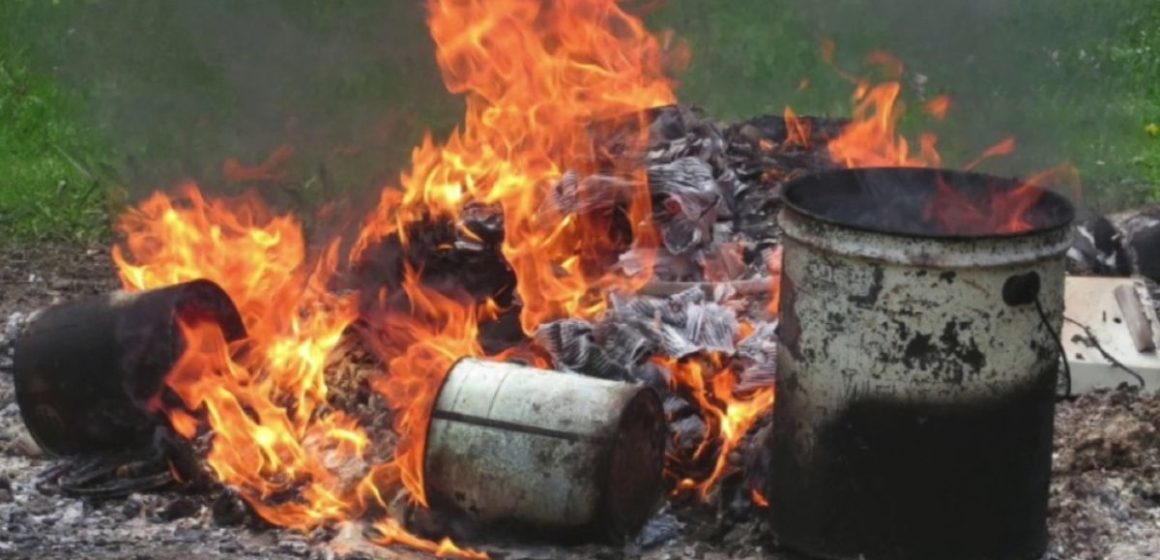Florida’s warm climate and vast rural spaces often make outdoor burning a common activity, whether for clearing yard debris, managing agricultural land, or simply enjoying a cozy backyard bonfire.
But the ability to burn on your own property in the Sunshine State isn’t as simple as striking a match. Florida has specific fire laws and safety guidelines that property owners must follow to burn legally and responsibly.
Here’s what you need to know before lighting up on your own land.
Is Burning on Private Property Legal in Florida?
Yes, burning on your private property is legal in Florida under certain conditions. The Florida Forest Service (FFS), a division of the Florida Department of Agriculture and Consumer Services (FDACS), regulates open burning in the state. The laws vary depending on the type of fire, location, and purpose.
There are generally three types of legal burns recognized by the FFS:
- Yard waste burns
- Recreational fires (like campfires or fire pits)
- Authorized agricultural or land-clearing burns
However, all open burning must comply with state regulations and, in some cases, require a permit.
Burning Yard Waste
You can burn yard waste—like tree limbs, leaves, and brush—on your property without a permit if the following conditions are met:
- The fire is no larger than 8 feet in diameter.
- It is set in a clear area, free of combustible materials (like grass or pine needles) within 25 feet.
- It is at least:
- 25 feet from your home or wooded areas
- 50 feet from public roads
- 150 feet from other occupied buildings
- Weather conditions permit it—no burning during dry or windy conditions.
- It is monitored constantly and extinguished completely when finished.
Violating these conditions can lead to fines or legal liability if the fire causes damage.
Recreational Fires and Fire Pits
Backyard fire pits, campfires, and chimineas are typically allowed throughout Florida, but local ordinances may apply. These fires do not require a permit and are legal as long as:
- The fire is small and contained (such as in a manufactured fire pit).
- It’s used for cooking or recreational purposes.
- You have a water source or fire extinguisher nearby.
- You ensure the fire is attended at all times.
Local counties or cities may impose restrictions or temporary burn bans, especially during dry seasons. Always check with your local fire department or county website.
Agricultural and Land-Clearing Burns
For agricultural purposes—such as burning crops, sugarcane, or for pasture maintenance—a burn authorization is required from the Florida Forest Service. These burns are closely regulated and must follow strict environmental and safety guidelines.
Land-clearing operations (common in construction or large-scale landscaping) also require authorization and may be subject to air quality regulations under the Florida Department of Environmental Protection.
When You Need a Burn Authorization
If your fire is larger than what is permitted for yard waste, or if it involves land clearing or agricultural activities, you must contact your local FFS office to request a burn authorization.
You will be asked to provide:
- Location of the burn
- Purpose and type of materials to be burned
- Estimated size and duration
FFS will check current fire danger levels, weather conditions, and other environmental concerns before issuing a permit.
What About Burn Bans?
Florida counties can issue temporary burn bans when fire danger is high—typically during droughts or dry seasons. Burn bans override all standard permissions, even for small fires.
A burn ban means:
- All open burning is prohibited, including yard waste and campfires.
- Some counties may allow enclosed grills or gas-powered fire pits, but restrictions vary.
You can check the Florida Forest Service’s Fire Danger Map or your county’s emergency management website for real-time updates.
Penalties for Illegal Burning
Violating Florida’s fire laws can result in serious consequences:
- Fines starting at $150 and going up to $1,000 or more for severe violations
- Liability for damages if your fire spreads and causes injury or property damage
- Criminal charges in extreme cases, including reckless burning or arson
If a fire escapes your control, even unintentionally, you may be responsible for suppression costs and damages.
Fire Safety Tips for Burning at Home
To reduce risk and ensure you’re within the law, follow these safety tips:
- Always check local burn conditions and bans.
- Clear the area around your fire from flammable materials.
- Keep a water hose, shovel, or extinguisher nearby.
- Burn only natural materials—no garbage, plastic, or treated wood.
- Avoid burning on windy or dry days.
- Never leave a fire unattended.
Final Thoughts
Burning on your own property in Florida is generally allowed, but it comes with responsibilities. Understanding the laws and adhering to safety guidelines protects not just your property but your community and environment. Whether you’re clearing brush or enjoying a backyard fire pit, make sure you’re following the rules—and when in doubt, check with local authorities or the Florida Forest Service.



Leave a Reply